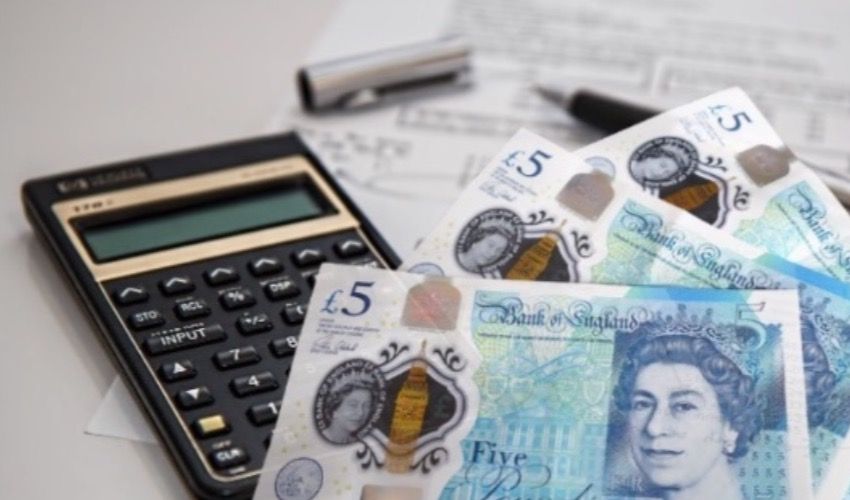


The Government missed its £35.5m savings target by £3.3m last year, with Education making up a key part of the shortfall.
According to the recently released Government Annual Report and Accounts for 2021, Children, Young People, Education and Skills (CYPES) was charged with making £3.2m of ‘rebalancing measures’ but only managed £1.7m last year.
However, some of the CYPES projects that didn’t deliver were still achieved on a recurring basis through ‘business-as-usual’ underspends.
A project to save £1.06m through “contract efficiencies and cost recovery” fell £571,000 short in relation to “cost recovery of Highlands College courses” but CYPES is working to identify more savings here.
It also hopes to work on an “accommodation rationalisation and business support review” to make another £571,000 of savings, having met £564,000 of a £1.13m budget target last year.
The Chief Operations Officer’s Department also under-delivered on savings by £635,000 because of delays in transferring technology functions from CYPES and Health to the Government’s ‘Modernisation and Digital’ programme.
Pictured: The Government want to achieve £120m of savings by the end of 2024.
On this, the annual report states: “Consolidating the technology functions had negative impacts on the staff within those teams and it was expected that less staff would be required in the resulting team.
“However, the consolidated function will benefit from the pooling of skills, knowledge and experience, and enable the standardisation of approach across departments.”
The Government Plan 2020-2023 set out the ambition to achieve £100m of 'efficiencies' - defined at the time as savings that will not impact on services - with the first £40m to be achieved in 2020.
In the Government Plan 2021-2024, the Council of Ministers added an extra £20m objective in 2024, increasing the total value to £120m of efficiencies and other rebalancing measures to be delivered across 2020 to 2024.
In 2019, the States Assembly agreed that the Council of Ministers “bring forward detailed proposals each year, to be included as a separate paragraph within the Government Plan proposition, seeking the Assembly’s specific endorsement of each of the efficiencies contained in the Government Plan”.
The plan was to save £40m in 2020, which achieved through £25m of ongoing efficiencies and a further £15m of one-off measures, mainly through putting off spending in some areas while it focused on the covid response.
Should deferring normal spending because of shifting priorities to deal with a pandemic be deemed a saving? The Government thinks so.
The £15.5m of one-off measures was carried forward for delivery on a recurring basis in 2021, which the Government says “ensures continued focus on building a more efficient public sector”.
This meant that, last year, there was a cumulative “rebalancing” target of £60m.
£35.5m of that needed to be delivered on a rolling, permanent basis, including the £15.5m carried over from 2020, as this had been achieved by a one-off reduction in spend.
Recognising the continued impact of covid, the plan for 2021 revolved around cutting revenue expenditure, increasing revenue by better cost recovery, better debt management and finding new ways to charge for services.
During 2021, £32.2m of the updated re-balancing target of £35.5m was delivered on a ongoing basis and £1.8m was achieved on a one-off basis, therefore £3.3m of the target was not delivered but balanced by deferred growth. As a result, £4.8m will be added to this year's target.
Savings that were achieved across departments included:
redesigning the ‘therapeutic support model’ for children with complex needs (CYPES, £200,000 saving);
removal of overstated budgets before 2020 for agency staff (Health, £1.3m delivered over efficiency budget);
reduction in property maintenance budget following reprioritisation of assets requiring maintenance (IHE, £300,000 saving);
increased passport fees after impact of covid in 2020 (JHA, £193,000 saving);
vacancies in department (Treasury, £190,000 saving).
Despite failing to hit its target, the Government has said that last year's financial performance was much better than expected, with the public purse ending the year with £59m more than it had at the beginning of the year.
However, the public service headcount increased by 354 people in 2021.
£59m surplus as stamp duty boosts "better than expected" accounts
Comments
Comments on this story express the views of the commentator only, not Bailiwick Publishing. We are unable to guarantee the accuracy of any of those comments.